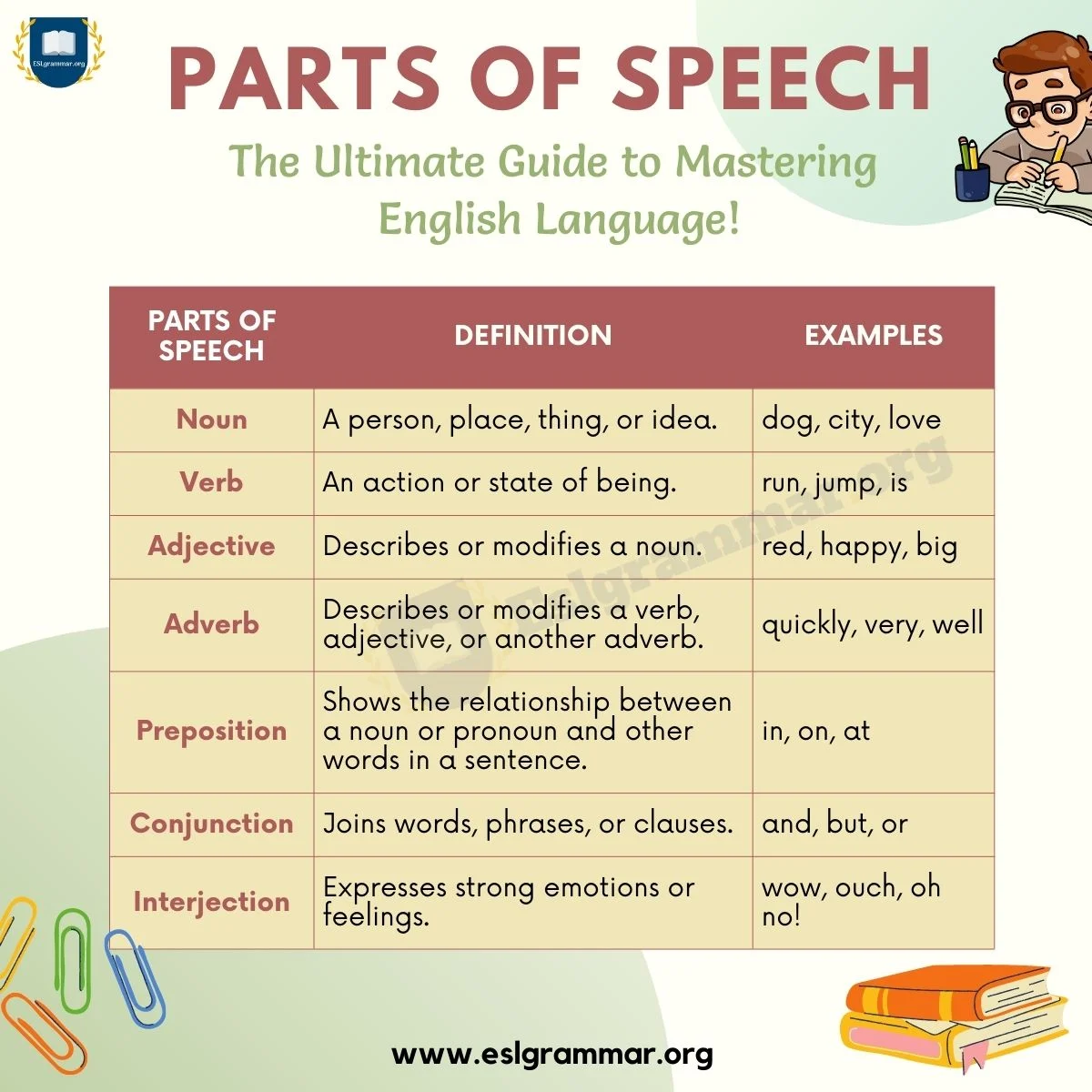
Contents:
- Spoken English
- Part of Speech: Noun
- Punctuation : Apostrophe
A. Spoken English
The /i:/ sound
The /i:/ is pronounced as a long e as in
e – be, he, these
ee – tree, bee, need
ea – sea, meat
i – police, machine
ie – chief, believe
ei – seize
B. Grammar
Parts of Speech : NOUN
A NOUN is a name of a person, animal, place or thing.
Examples:
The Boy works hard – Boy is the Noun (Name of a person)
My Uncle lives in Kenya – Kenya (place)
Look at the Bags – Bags (thing)
Common Nouns: There are two kinds of nouns – Common nouns and Proper nouns. A common noun can be the name of:
i. a person – a teacher, a student, a sister
ii. an animal – a cow, a goat, an elephant
iii. a plant – a thornbush, an iroko tree
iv. a thing – a radio, a car, a bed
v. a place – a house, a garden, a school
vi. a quality or idea – courage, wisdom, freedom
vii. an action – laughter, smile
Using Common nouns with A or An:
The little words A, AN and THE are called ARTICLES. A and AN are called Indefinite articles while THE is a Definite article.
We use A or An before common nouns that name people, animals, plants, things or places.
We use An before words that begin with vowel sounds A, E, I, O or U.
Examples: An ant, An egg, An insect, An orange.
We use A before words that begin with consonant sounds.
Examples: A car, A girl, A fish, A school.
Proper Nouns: Proper nouns are the names of particular places or people. They always begin with capital letters. Proper nouns include:
i. The names of places: Africa, Asia, Lagos State, Agege
ii. The names and titles of people : The Principal, Mr Momodu, Mrs Abiodun, Alhaji Ali, Charity
iii. The names of the days of the week and special days: Monday, Good Friday, Saturday, Eid-el-Fitr
iv. The names of the months of the year and special festivals: April, November, Easter, Ramadan, Christmas
v. The names of school subjects: Social Studies, English, Mathematics
vi. Other names: Nigeria Airways, Government college, Central Bank of Nigeria
C. Vocabulary: Punctuation
Apostrophe (‘) – Uses of apostrophe
i. The marking of the omission of one or more letters
e.g. do not written as don’t
ii. To illustrate a possessive case
e.g. My Father’s Car
iii. Used as plural of written items that are not words established in English orthography
e.g. P’s, Q’s
Assessment
1. Identify the nouns in this sentences:
a) Peter is going to School
b) The cat slept under the bed
2. The /i:/ sound can be recognized in one of the following words.
a) lime b) see c) head d) nice
3. Pick the correct option
a) An horse b) A umbrella c) An aunt d) An cap
4. One of these options is not a proper noun
a) Sokoto b) Mrs Akerele c) Boxing Day d) Courage
5. Which is the odd one?
a) A b) An c) Am d) The
Answers
1. a: Peter – Name of a person, School – Name of a place
b: Cat – Name of an animal, Bed – Name of a thing
2. See – It has the long e sound
3. An aunt – Indefinite article AN is used before vowel sounds
4. Courage – This is a common noun
5. Am – This is not an article

